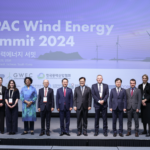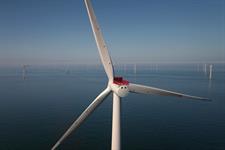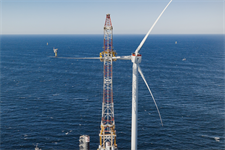Industry slams UK government plans for ‘windfall tax’ on renewable energy
Energy Disrupter
The government’s proposed Energy Prices Bill contains a ‘cost-plus-revenue limit’ which it said will ensure consumers do not pay significantly more for electricity generated from renewables and nuclear.
Wholesale electricity prices in the UK are currently set by the most expensive form of generation, which is from gas-fired power stations, the costs of which have risen significantly in the wake of Russia’s invasion of Ukraine.
According to the government, low-carbon electricity generators are “benefitting from abnormally high prices” and the proposed price cap – which will apply only to England and Wales – is a means of breaking the link between high gas prices and renewable energy.
The department for business, energy and industrial strategy (BEIS), which proposed the legislation, said it would consult the industry regarding the “precise mechanics” of how the price cap would work but it expects the measures to come into force from January.
Price cap explained
BEIS said the price cap would only apply to renewable energy projects which are not already covered by a contract for difference (CfD) and that it was a temporary measure which would continue until either market prices return to normal or renewable firms signed a CfD.
The department said the price cap would allow renewable generators to cover their costs and receive “an appropriate revenue” but it signalled that it was willing to negotiate with the industry on what a “reasonable upper limit” should be, based on projections of wholesale prices before the war in Ukraine.
BEIS claimed it was not imposing a windfall tax on renewable firms because the price cap would only apply to “excess revenues” rather than all profits.
Jacob Rees-Mogg, BEIS secretary, said: “We have been working with low-carbon generators to find a solution that will ensure consumers are not paying significantly more for electricity generated from renewables and nuclear.”
Industry reaction

But RenewableUK accused the government of targeting low-carbon energy production while fossil-fuel generators benefitted from significantly lower tax rates. This poses potential risks to long-term investment in renewables, it argued.
Dan McGrail (pictured above), chief executive of RenewableUK, said: “We are concerned that a price cap will send the wrong signal to investors in renewable energy in the UK. A price cap acting as a 100% windfall tax on renewables’ revenue above a certain level, while excess oil and gas profits are taxed at 25%, risks skewing investment towards the fossil fuels that have caused this energy crisis.”
The industry body said the government had failed to set out the details of the price cap or how long they would be in place.
It said wind power needed to attract £175bn (€199 billion) of investment in this decade alone and added that it was “essential” the price cap did not make the UK less attractive to investors.
‘De-facto windfall tax’
Wind farm developer RWE also criticised the government’s decision to impose a price cap on renewable energy.
Tom Glover, RWE’s UK country chair, said: “Effectively, a cap is a de-facto ‘windfall tax’ on low-carbon generators that, if not designed and implemented correctly, could have severe negative consequences for investment in the renewable and wider energy market and so for the energy transition.”
RWE said voluntary CfD arrangements were the most efficient and “investor-friendly” means of decoupling electricity from gas prices and that it welcomed the opportunity to consult with government to “minimize any adverse consequences” from its measures.
Glover called for parity of the “windfall tax” with the oil and gas sector and said any cap on prices should not exceed the maximum revenue cap proposed by the European Commission, of €180/MWh in order not to deter renewables investment in the UK.















